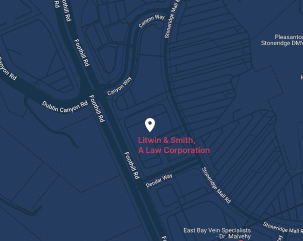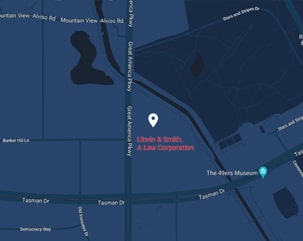Temporary Protected Status (TPS) Provides a Path to Permanent Residency
November 13, 2017
Recently acting Secretary Elaine Duke announced that Temporary Protected Status for Nicaraguans and Hondurans would be ending on January 5, 2019 and July 5, 2018. Nicaraguans and Hondurans with TPS will be required to reapply for Employment Authorization Documents in order to legally work in the United States until the end of the respective termination or extension periods. Further details about this renewal for TPS will appear in a Federal Register notice.
An alien granted TPS receives two primary benefits during the period in which TPS is in effect:
· They are not subject to removal and he is authorized to work in the United States and supplied with the relevant accompanying documentation; and
· For purposes of adjustment of status and change of status, the alien receiving TPS is considered as being in, and maintaining, lawful status as a nonimmigrant.
Courts in the 9th Circuit have interpreted this to mean that an alien receiving TPS can adjust their status to Lawful Permanent Residency. The Sixth Circuit has also reached this same conclusion regarding a TPS Adjustment of Status and that a TPS grant is an “admission.” This is because TPS confers an actual status on and provides a slew of benefits to an alien who satisfies rigorous eligibility requirements, it is different than other forms of temporary reprieve we ordinarily would not consider sufficient for ”admission.”
What is an “Adjustment of Status?”
Lawful Permanent Residency “Green Card” enables a non-citizen to live and work in the United States on a permanent basis. As proof of that status, a person is granted a permanent resident card, commonly called a “green card.” Adjustment of status (“AOS”) is a procedure that allows an eligible applicant to become a lawful permanent resident of the United States without having to go abroad and apply for an immigrant visa.
A green card can be obtained through a petitioning employer or a petitioning family member. Most immigrant categories require you to have an approved immigrant petition before you can file an Application to Register Permanent Residence or Adjust Status. However, some categories may allow you to file your Form I-485 at the same time that the immigrant petition is filed or while the immigrant petition is pending. This is known as “concurrent filing.”
Filing for an Adjustment of Status Has Many Advantages
Earlier work authorization (EAD) document for the applicant, spouse and children.
When adjustment of status is filed, a person can remain in the United States for as long as it takes to adjudicate the application-for persons who are running out of time. For example, they are reaching the sixth year of their H-1 stay in the United States, as long as their adjustment of status application is filed with the Immigration Service, they can remain in the United States for the two to three years that it takes to adjudicate. This is done by obtaining work authorization as well as travel permission, if needed.
Some factors make a case “difficult.” Factors such as time spent in the United States while the person is out of status, changes in job duties, changes in the employer, criminal background, or fraud (real or imagined) all can create problematic issues overseas. A person who has applied for adjustment of status can continue to remain, work, and live in the United States until the issue is resolved.
It also has its disadvantages
It is currently taking two to three years to adjudicate an application for adjustment of status. During this period of time, a person who is applying for permanent residence based on employment cannot change his or her employment within the company or seek employment with another company. This can cause considerable problems in our dynamic economy and prevent a person from moving on to better paying or more challenging jobs.
Persons who frequently need to travel and cannot wait up to three months in order to obtain travel authorization, may be disadvantaged by applying for adjustment of status.
Business, Employment, and Family Immigration Services
Our Bay Area immigration law attorneys are focused on meeting our clients’ needs and objectives, whether they are foreign nationals seeking temporary or permanent residence in the U.S., or employers needing assistance in sponsoring an employee or individuals sponsoring a family member for a visa. We explore all immigrant and nonimmigrant visa options to provide clients with the most efficient and effective strategy to obtain their goals.
Would You Like to Immigrate to the United States?
For many, immigrating to the United States is a lifelong dream. However, the United States, as with most first world countries, places limits on the types and numbers of people who can come to permanently reside in the U.S.
This article answers many of the most of the frequently asked questions, which we receive in our office about how to immigrate to the United States.
If you still have questions about immigrating to the United States or any other immigration matter, please contact or call Litwin & Smith and arrange for an appointment at one of our San Francisco, South San Francisco, or Santa Clara offices.
There is an initial consultation fee for the first half-hour. The information in this article does not constitute legal advice. The law is constantly changing, and we make no warranty of the accuracy of the information provided.
8 U.S.C. § 1254a(a)(1)-(2)
Id. § 1254a(f)(4)
Ramirez v. Brown, 852 F.3d 954, 963 (9th Cir. 2017)
Flores v. U.S. Citizenship & Immigration Services, 71 8 F. 3d 548, 555 (6th Cir. 2013).


